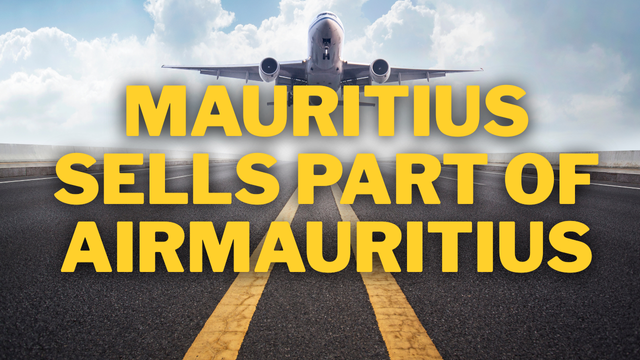A Turning Point for the Island’s National Airline
Surprising and significant – that is how many Mauritians and industry watchers describe the recent news surrounding AirMauritius. In the span of just two days, the national carrier found itself at the center of two major developments: the government’s plan to sell a minority stake in the airline, and the company’s decision to renegotiate its large Airbus A350 order. Together, these steps mark a turning point for the airline and raise important questions about the future of aviation in Mauritius.
This article takes a closer look at what is really happening, why these decisions are being made now, and what it could mean for locals, travelers, and the wider economy. We break down the details so that everyone can understand what is at stake and what the next chapter of AirMauritius might look like.
Why Mauritius Wants to Sell Part of AirMauritius
AirMauritius has always been more than just an airline. For many Mauritians, it represents national pride, a bridge between the island and the rest of the world, and a crucial engine for tourism. However, keeping a national airline alive and competitive is not easy, especially for a small island nation that depends heavily on long-haul routes.
In August 2025, Bloomberg reported that the Mauritian government is preparing to sell a 49% minority stake in AirMauritius. This means that nearly half of the company could be owned by a foreign investor or a strategic airline partner in the near future. The reason is straightforward: money and stability.
Running an airline is extremely expensive. Jet fuel prices, global competition, maintenance costs, and aircraft purchases all create enormous financial pressure. AirMauritius has survived a bankruptcy restructuring during the COVID-19 pandemic, but the scars of that period are still visible. Even though the company recently returned to profitability in one quarter, it needs fresh capital and expertise to stay strong in the long term.
Selling a stake offers a way to bring in both cash and a strategic partner. For example, Qatar Airways has been mentioned as one of the most likely buyers. Such a partnership would not only strengthen the finances of AirMauritius but also give it access to wider route networks and technical know-how.
What Does 49% Actually Mean?
Some people hear “sale” and immediately fear that the national airline will no longer be Mauritian. But this is not the case. By selling 49%, the government keeps majority control (51%). This means that AirMauritius would still remain a national airline, with Mauritius keeping the final say on important decisions.
However, a new partner would still have strong influence. A 49% shareholder can shape business strategies, push for efficiency, and expect profitability. In practice, this could mean a leaner, more competitive airline, but also some tough changes for employees or routes that are not profitable enough.
For the average passenger, though, this may actually bring improvements: better service, stronger connections to Europe, Asia, and Africa, and possibly more competitive ticket prices.
Why Now? Timing Is Everything
The decision to sell comes at a very particular moment. AirMauritius had recently placed orders for three additional Airbus A350-900 aircraft. These long-haul jets are among the most modern in the world, but they are also extremely expensive. Each one costs more than USD 200 million.
With four A350s already in service, the airline began to realize that adding three more might be too ambitious. Traffic is recovering, but not fast enough to fill such a large capacity. Instead of risking debt and financial strain, the management decided to renegotiate the order with Airbus. This could mean delaying deliveries, canceling one or two aircraft, or even switching to smaller, more flexible planes.
At the same time, the government recognized that to secure the airline’s future, external capital and expertise were needed. Announcing the sale of a minority stake right after news of the fleet restructuring sends a clear signal: Mauritius is serious about reshaping AirMauritius into a sustainable and competitive carrier.
The Fleet Restructuring Explained
AirMauritius currently operates a mixed fleet of Airbus A350s and A330s for long-haul routes, and smaller ATR aircraft for regional and inter-island flights. The A350 order was originally meant to modernize and expand long-haul capacity, especially toward Europe and Asia.
But the world has changed. Travel demand has not bounced back in the same predictable way after COVID-19. Business travel remains lower, and leisure demand is more seasonal. Adding too many wide-body aircraft could leave AirMauritius struggling with half-empty planes and unsustainable costs.
By renegotiating the A350 order, the airline is choosing caution over ambition. It prefers to wait, study the market, and possibly consider other aircraft types that could give more flexibility. For example, a long-range narrow-body aircraft could serve certain routes more efficiently, without the huge operating costs of an A350.
This is not about giving up growth – it is about smart growth. For a national airline like AirMauritius, avoiding financial risks is essential, especially when tourism is such a vital pillar of the Mauritian economy.
The Human Side: What It Means for Mauritius
For ordinary Mauritians, these developments can feel worrying. Will the airline still be “ours”? Will jobs be safe? Will ticket prices rise?
The reality is complex, but there are several reassuring points:
- National control remains. Even after selling 49%, Mauritius keeps 51%. This ensures that the airline remains majority Mauritian-owned.
- Tourism benefits. Stronger financial partners could mean better connections to major markets. More tourists would ultimately benefit hotels, restaurants, and local businesses.
- Job security challenges. Restructuring often brings efficiency measures, which could affect staffing. However, a financially healthy airline is more likely to preserve long-term employment than one struggling with losses.
- Global recognition. A strategic partner such as Qatar Airways or an Indian carrier could put Mauritius more firmly on the global aviation map.
Looking Back: The Rollercoaster History of AirMauritius
AirMauritius has experienced dramatic ups and downs in its 56-year history. It was born in 1967 as the island sought independence and a place in global aviation. For decades, it proudly connected Mauritius to Europe, Asia, and Africa, serving as a lifeline for tourism and diaspora connections.
But the airline also faced repeated crises. Rising fuel costs, over-expansion, and global recessions created instability. The COVID-19 pandemic hit hardest, forcing the airline into administration and a painful restructuring. Entire fleets were grounded, employees faced uncertainty, and the government had to step in to rescue the national symbol.
Emerging from bankruptcy, AirMauritius has tried to position itself as leaner and more focused. But the need for modernization and global competitiveness remains. That is why the current sale and fleet restructuring are not just about survival – they are about redefining the future of Mauritius’s aviation.
International Interest and Geopolitics
The possible involvement of Qatar Airways is not just about business – it is also about geopolitics. The Indian Ocean region is becoming strategically important. With Air Mauritius, Qatar Airways or another big player could secure a valuable hub between Africa and Asia.
India has also shown interest. Reports suggest that the Indian government has encouraged its airlines to consider investing in AirMauritius, as part of a broader strategy to expand influence in the Indian Ocean. For Mauritius, this means strong bargaining power – several interested buyers could compete to secure the deal.
What Happens Next?
The process of selling a stake is not immediate. Here is what to expect in the coming months:
- Tender process: Official invitations for bids are expected to open soon.
- Evaluation: The government will study offers, considering not only price but also strategic value (network, expertise, investment capacity).
- Decision: A chosen partner could be announced within months, though negotiations could take longer.
- Fleet outcome: In parallel, the renegotiation with Airbus must be finalized. This could result in fewer A350s or a modified order.
Why This Matters for Everyone
At first glance, these may seem like technical business moves. But for Mauritius, the health of AirMauritius is tied to the lifeblood of the island’s economy – tourism. Every visitor who flies in brings money that supports thousands of jobs. A stable, well-run national airline ensures that Mauritius remains accessible, competitive, and attractive.
If the sale and fleet restructuring succeed, AirMauritius could emerge stronger, with a modernized fleet, stable finances, and powerful partnerships. If they fail, the airline could struggle once again, putting the tourism industry and national pride at risk.
Conclusion: A Bold But Necessary Step
Change is never easy, especially when it involves a symbol as emotional as AirMauritius. But the current plan – selling a 49% minority stake and renegotiating the costly A350 order – shows that Mauritius is ready to make bold choices to protect its future.
For locals, it means keeping a national airline alive and hopefully more efficient. For travelers, it could mean more options, better service, and stronger global connections. And for Mauritius as a whole, it is about securing its place as a top tourism destination in an increasingly competitive world.
In the end, the story of AirMauritius is the story of Mauritius itself – resilient, adaptable, and determined to rise stronger after every challenge.






